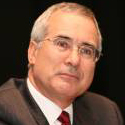The opening scene of the film, Apollo 13, plunges the viewer into a switchback thrill as a pilot and his crew wrestle with the controls of an increasingly erratic space vehicle. After a particularly abrupt lurch, the motion ceases and Tom Hanks, playing the astronaut, Jim Lovell, turns in irritation to his colleagues to pronounce: “we’re all dead.”
The Apollo 13 crew, whether in fiction or real life, was fortunate that the Houston geeks who programmed the NASA flight simulators included everything that mattered. After more practice, the astronauts improved their skills, ultimately saving their lives.
Too much that matters is left out of contemporary scientific and economic modelling of the impact of climate change. That was the headline message of last week’s major speech by Lord Stern at a Washington event hosted by the IMF and the World Resources Institute. In consequence, political leaders don’t understand environmental risks well enough to pilot global economic policy safely through our turbulent times.

The British economist commands attention amongst his peers in Washington, as elsewhere, for the 2007 Stern Report that showed policymakers how to embed a response to climate change into national economic equations.
“A lot of the things that scientists worry about, but which they cannot yet model precisely, get left out of these (climate) models,” Stern said. “But the best estimate of that danger cannot be zero.” He mentioned in particular the interaction between climate and other ecosystems – and the potential for tipping points in these interactions.
The impact on human lives is therefore underestimated. Citing the example of the projected impact of climate change on crop yields in northern India, Lord Stern expressed concern: “you end up with actually rather trivial statements of small losses for a radical transformation in what’s going on.”
Questioned after the presentation, Stern conceded that he could not see how his demand for a “new generation of scientific models” could be fulfilled in the next 10-20 years; too late, as he admitted.
Whilst not belittling the sheer difficulty of the earth science involved, I can’t help wondering whether our tendency to pigeon-hole different environmental topics has blinkered attention to the bigger picture. For example, at the landmark Rio Earth summit in 1992, governments signed up to separate UN Conventions for climate change, biodiversity and desertification.
That seemed good sense at the time but the Intergovernmental Panel on Climate Change has naturally served its master, the UN Convention, by focusing on the science of its title. Since 2012, we have the quite separate Intergovernmental Platform on Biodiversity and Ecosystem Services (IPBES).
There’s a strong argument that the proposed 2015 Sustainable Development Goals should knock all these silos together into a single goal for planetary stewardship, to accompany human development goals. Then those fiendishly difficult all-embracing climate models might begin to see the light of day.
******
Fostering Growth and Poverty Reduction in a World of Immense Risk – Lord Stern’s presentation, hosted by WRI and IMF